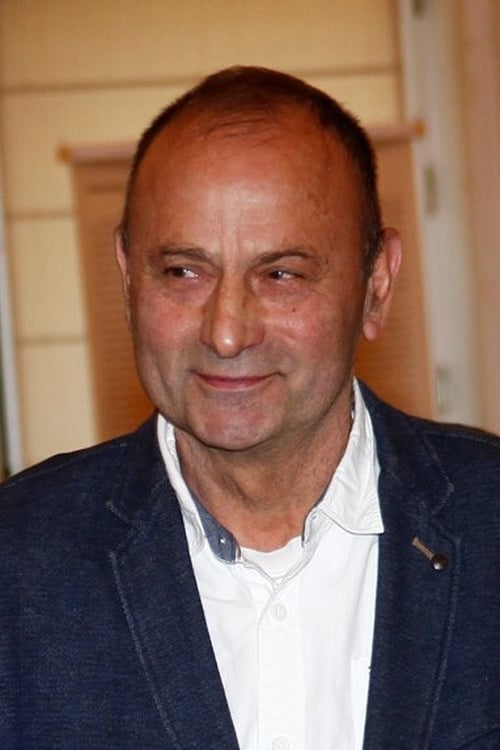Burn, Burn, Little Fire (1994)
Género : Drama
Tiempo de ejecución : 4H 0M
Director : Rumyana Petkova
Sinopsis
A new teacher - Marina - arrives in a small Pomak village in the late 1960s. She is a woman trying to live and think independently. Marina finds herself in a world unknown to her, at once pure and immaculate, but with the signs of the deformation of natural life that is typical of the whole country. After meeting the Doctor, Bai Mnogoznai, Mariana, the mayor, the internationalist Yosko, she discovers that each resists authority in their own way. And when the government starts changing the non-Bulgarian names of the Pomak villagers, the heroine realizes she is in a prison - with high mountains, forests, rivers - a prison of tragic beauty.
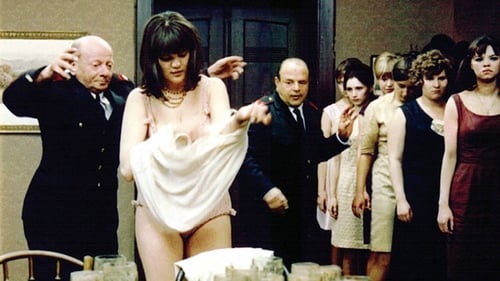
El prestigioso director Milos Forman rueda esta historia sobre la fiesta de cumpleaños de un veterano bombero.
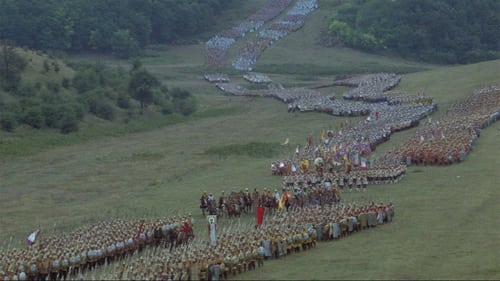
The last part of the epic "Khan Asparukh" - "Land Forever" is an impressive finish to scale narrative, created for the nationwide celebration of 13 century anniversary of the Bulgarian state. The authors collected in final chord all storylines, culminating in the political strengthening of the young Bulgarian state. In the center of the film epic again is the image of Khan Asparukh - a lofty romantic hero who embodies the virtues and energy of his people.

A new teacher - Marina - arrives in a small Pomak village in the late 1960s. She is a woman trying to live and think independently. Marina finds herself in a world unknown to her, at once pure and immaculate, but with the signs of the deformation of natural life that is typical of the whole country. After meeting the Doctor, Bai Mnogoznai, Mariana, the mayor, the internationalist Yosko, she discovers that each resists authority in their own way. And when the government starts changing the non-Bulgarian names of the Pomak villagers, the heroine realizes she is in a prison - with high mountains, forests, rivers - a prison of tragic beauty.

This is a film about the moral and philosophical sides of the life and the art, about the complex relations between the artist and the rough rules of the time in which he lives.
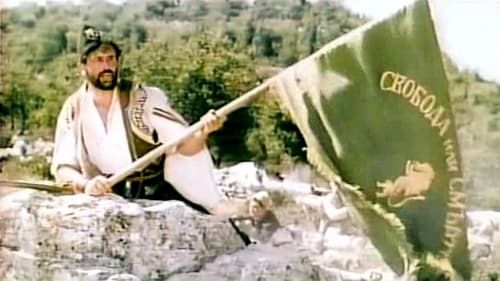
In а short but heroic campaign, Bulgarian poet and revolutionary Hristo Botev leads a band of rebels from the Danube to the Balkan Range.
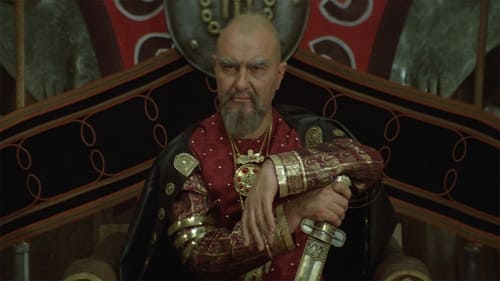
This is an epic screen presentation showing the creation, the consolidation and the power of First Bulgarian Kingdom and the first Bulgarian ruler Khan Asparuh. This is the first part of the film trilogy about the events before the creation of the Bulgarian state in the middle of the VII century. Volga Bulgaria is straining under the attacks of the Khazars. Following the testament of his father, the sons of Khan Kubrat looking for a new home for their tribes. The youngest of them - Asparukh, wander 20 years in search of "land forever" for his people and reaches the mouth of the Danube. The film is narrated by captured Byzantine chronicler Belisarius, which should Asparukh in his journeys. Byzantine witnessed the heroic efforts of the Bulgarians to win the land south of the Danube and to create their new country.

This is an epic screen presentation showing the creation, the consolidation and the power of First Bulgarian Kingdom and the first Bulgarian ruler Khan Asparuh. The second part of the great historical epic - "The Migration" - tells about the long journey to the land of the Bulgarians of today's Bulgaria. Here the young Khan Asparukh laid the foundations of the new state. The authors adhere to the established historical versions for this event. The film builds on the impressive mass scenes and the convincing served psychological characteristics of the main characters. The image of Asparoukh is a natural center of the story, in which many minor persons recreate the environment of the Khan. Romantic exalted, Asparukh is shown as capable leader of the people, consistently implement his own ideas.

The picture features the life and deeds of Boris I - strong historic personality, which completes his mission to the full and at the end of his life receives holy orders. Prince Boris I is ruling in the late 9th century. In his youth, he, the brilliant statesman and diplomat, is experiencing heavy defeats in the wars he wages against his neighbors. Nonetheless, he manages not to cede any territories to the enemies. Under his rule, Bulgaria breaks with paganism and joins the Christian community, paying an exorbitant price, a heavy death toll, but there is no other way. The adoption of Christianity in 864 was a historical event of great significance. It guaranteed Boris I much need peace with the Eastern Roman Empire and allowed him to merge the numerous tribes inhabiting the country into a unified nationality and later to found a state. Boris I introduced the Slav script, thus turning Bulgaria into the cradle of Slav culture.

Knyaz Boris I reached the most important spiritual insight - the country needed a single language and script. It accepts students of Cyril and Methodius, creating Ohrid and Preslav Literary School. What other nations took centuries, for bulgarians takes place only about 20 years after their baptizing - introduced a Slavonic Alphabet.

An island in northwest Greece keeps memories of the Bulgarian past.

Documentary about the ex-secretary of the Bulgarian Communist Party - Traicho Kostov.

A film pioneer, Binka Zhelyazkova was at the forefront of political cinema under Bulgaria's Communist dictatorship. Though she remained faithful to the communist ideals she became an avid critic of the regime and brought upon herself the wrath of its censorship. As a result four of her nine films were shelved and released to the public only after the fall of the regime in 1989, and Binka Zhelyazkova became known as the bad girl of Bulgarian cinema. A provocative portrait that reveals the pressures and complexities that arise when art is made under totalitarianism.

Sanda spends all her time working in a plastic factory, raising her two small children and catering to an indifferent husband, leaving little room for herself. A chance encounter with another man may offer her an escape from her daily chores.

At the end of the 18th century in Bulgaria under Ottoman slavery, a young woman leaves home and family to become leader of a guerrilla gang.

A short documentary film about Czech-Bulgarian painter Ivan Mrkvička

After serving his military duty, Simo returns to his hometown. All day he rides his favourite horse Vihar and looks after the horses in the farm. Banov, the chairman of the cooperative farm, doesn't like Simo and wants to get rid of the horses, but Simo will not let this happen.
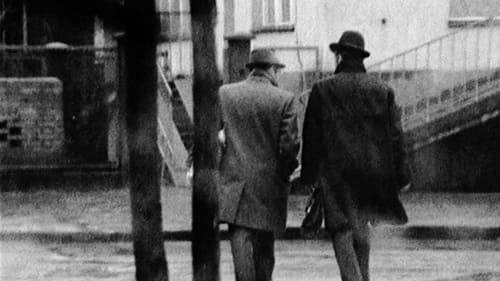
The story of what daily life was like in Poland under communism: private conversations, cruel interrogations, recruitment attempts, recorded and filmed with hidden devices; of how the secret services spied on every activity of ordinary citizens: nothing escaped the brutal system of control developed by the Soviets in the name of freedom.

While the film focuses on a mother and son’s relationship, it investigates the long-term effects of the immigration of the filmmaker’s family from Bulgaria to Turkey and the life of a widow in a patriarchal culture.

A documentary film exploring the legacy of the Holocaust in Bulgaria and the Balkans through the personal stories of three Bulgarian Jews.

Kornitsa and Breznitsa are two Muslim, Pomak, villages near Bulgaria's border with Greece. In the winter of 1973 the entire population of Kornitsa rebelled and spent the next 3 months camped out in the main square. Uniquely for Communist Eastern Europe, their village became a no-go area for the state. The peaceful protest came to an end at dawn, and the crackdown was brutal.



